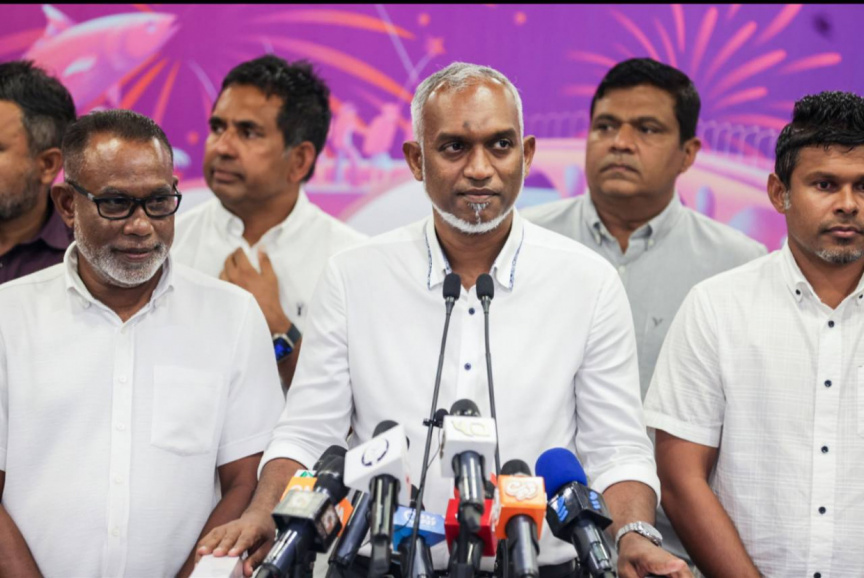The newly elected president of the Maldives, Mohamed Muizzu, has announced his intent to remove Indian military personnel from the island nation, in a move that could strain bilateral ties and affect regional security.
Muizzu, who won the presidential election on Saturday by a narrow margin, is backed by a coalition of parties that have close ties with China and are opposed to India’s presence and influence in the Maldives. He had led a campaign called “India Out” which accused India of interfering in the Maldives’ internal affairs and violating its sovereignty.
In his victory speech, Muizzu did not directly name India, but said that he would “restore the dignity and independence” of the archipelago and “end the occupation of foreign forces” on its soil.
He also said that he would review all the agreements and projects signed with India during the previous administration of Ibrahim Solih, who had pursued a pro-India policy and strengthened the bilateral cooperation in various fields.
India and the Maldives share a long history of friendship and strategic partnership, with India being the first country to recognize the Maldives after its independence in 1965 and to establish diplomatic relations. India has also been a key provider of security and development assistance to the Maldives, especially during times of crisis such as the 1988 coup attempt, the 2004 tsunami, the 2014 water shortage, and the COVID-19 pandemic.
India has a small contingent of military personnel in the Maldives, mainly for training and capacity-building purposes. India also operates two helicopters and a coastal surveillance radar system in the Maldives under a defence cooperation agreement signed in 2016. These assets are meant to enhance the maritime security and disaster relief capabilities of the Maldivian National Defence Force (MNDF).
However, Muizzu and his allies have portrayed India’s presence as a threat to the Maldives’ sovereignty and accused India of using its military assets for spying and meddling.
He also condemned India for imposing sanctions on the Maldives during the political turmoil in 2018, when former president Abdulla Yameen imposed a state of emergency and cracked down on his opponents. Yameen, who is currently serving a prison sentence for corruption charges, is also a supporter of Muizzu and China.
Meanwhile, China has been expanding its economic and strategic footprint in the Maldives in recent years, investing in infrastructure projects such as bridges, airports, and resorts under its Belt and Road Initiative (BRI). China also views the Maldives as an important node in its “String of Pearls” strategy to encircle India and gain access to the Indian Ocean.
China has reportedly sought to establish a naval base in the Maldives, which India considers as part of its sphere of influence.
Muizzu’s victory could signal a shift in the Maldives’ foreign policy orientation from India to China, which could have further implications for regional stability and security.
On the other hand, India has expressed its concern over China’s growing presence and activities in the Indian Ocean region, which it sees as a challenge to its interests and role as a net security provider. India has also been engaging with other countries such as the US, Japan, Australia, France, and Indonesia to counter China’s influence and promote a free and open Indo-Pacific.
However, India has not officially reacted to Muizzu’s announcement yet, rather, it congratulated him on his election victory and expressed its hope to work closely with him for the mutual benefit of both countries.
India also reiterated its commitment to support the Maldives’ development goals and respect its sovereignty and territorial integrity. However, it remains to be seen how India will respond to Muizzu’s plans to eject Indian troops from the Maldives and whether it will be able to maintain its cordial and cooperative relations with its neighbour.









